China: The powerful outsider missing from Russia-Ukraine talks
China is notably absent from high-profile Russia-Ukraine negotiations, yet its influence on the conflict’s outcome is undeniable. What explains this paradox of power from the sidelines? Lianhe Zaobao correspondent Sim Tze Wei notes the intriguing position of China in current world affairs.
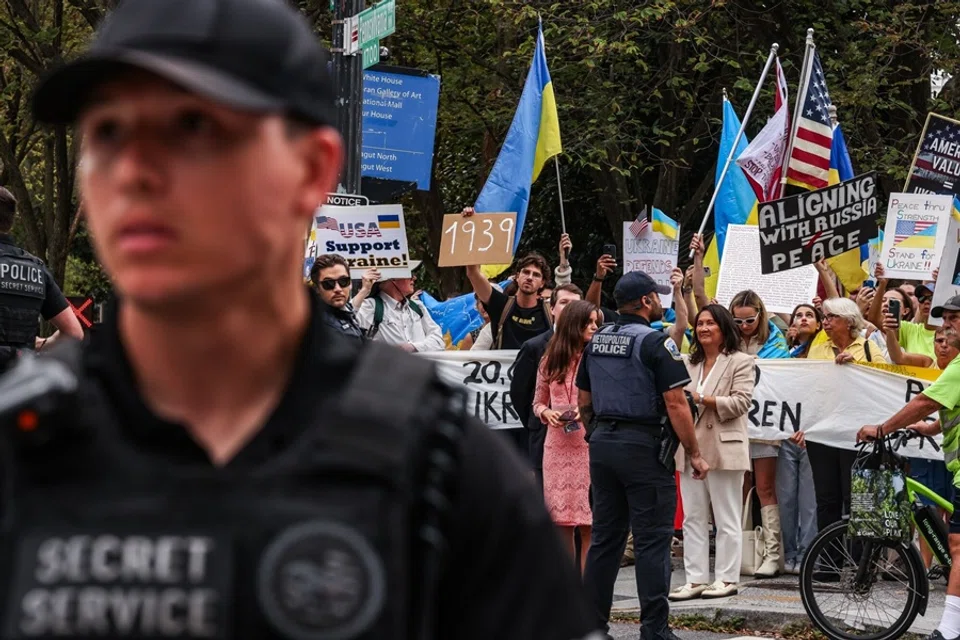
From the US-Russia Alaska summit to the arrival of Ukraine’s President Volodymyr Zelenskyy alongside seven European leaders at the White House, negotiations to end the Russia-Ukraine war are now in full swing under US President Donald Trump’s lead.
In just one week, a series of historic diplomatic events have unfolded before the world. Whether in bilateral or multilateral settings, one thing stands out: China is nowhere to be seen.
China’s ‘invisible but powerful’ presence
China is not a direct party to the conflict, so its absence from the negotiation table is not surprising. However, with both of these high-level talks revolving around the Russia-Ukraine war, US-Russia relations and European security — key issues in the global geopolitical landscape — world leaders can hardly avoid factoring in China’s complex and deeply entangled strategic role.
On Chinese online public opinion, several prominent “Big Vs” (or online influencers) have weighed in on China’s absence from both the Alaska summit and the White House meeting, highlighting the potential threats that shifting geopolitical dynamics could pose to China.
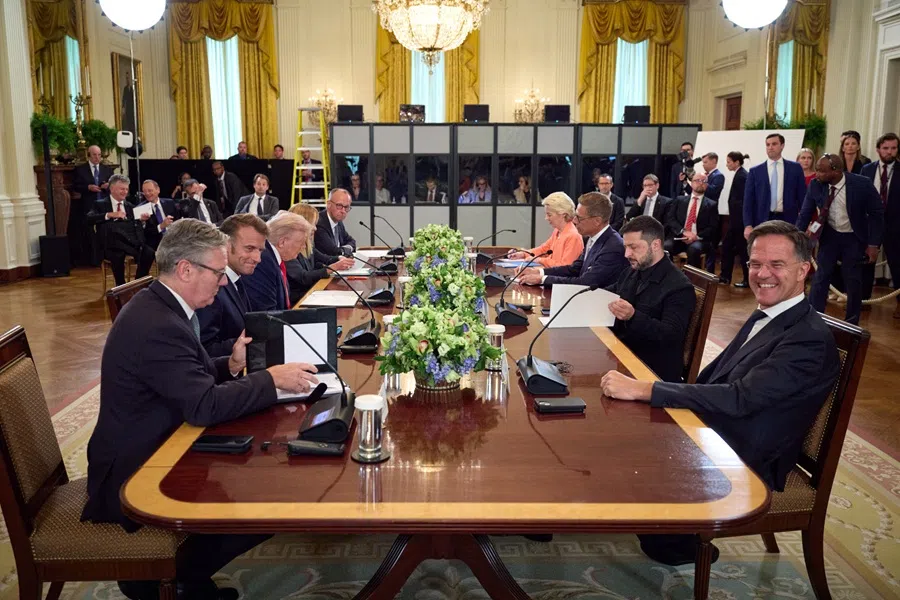
Victor Gao, vice-president of the Center for China & Globalization and former English interpreter for the late Chinese leader Deng Xiaoping, expressed concern that Trump might be attempting to join hands with Russia to resist China at the Alaska summit — pulling a “Reverse Nixon”. Trump reinforced this idea in a post-summit interview with US media, stating that China and Russia are “natural enemies”.
Gao warned that China should avoid getting caught in the crossfire, as Russia’s goal is to normalise relations with the US and the West. Still, he offered a more optimistic take: compared with Ukraine and Europe — who are either “at the table or on the menu” and risk total loss — China may not be at the table, but it should not be “on the menu” either.
Hu Xijin, former editor-in-chief of China’s state-run Global Times, voiced a question on many netizens’ minds: as multiple countries scramble to end the Russia-Ukraine war — where is China? Is China “silent”?
In an attempt to quell netizens’ doubts, Hu explained that China is an “invisible but powerful presence” in the peace process. He noted that whether China supports US-led mediation and the broader peace effort makes a significant difference to the outcome — and that China has already made clear that it welcomes US-Russia engagement and supports efforts to promote a political resolution to the Ukraine crisis.
China has not undermined Trump’s efforts to end the war — because peace serves China’s interests and would further ease China-Russia trade. — Hu Xijin, former Editor-in-Chief, Global Times
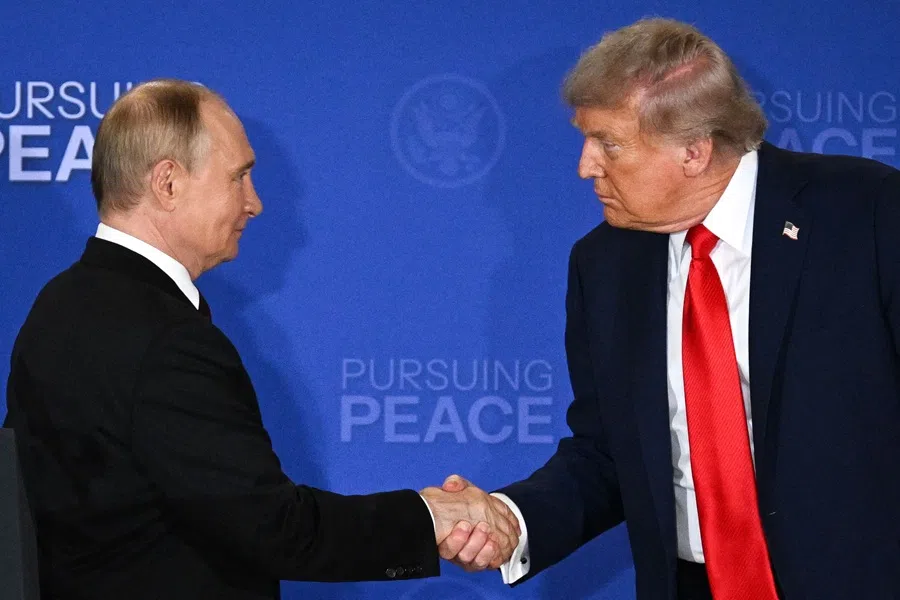
Hu also emphasised that China has not undermined Trump’s efforts to end the war — because peace serves China’s interests and would further ease China-Russia trade. Once fighting stops, the West would have no reason to oppose China exporting military equipment to Russia. It would also remove a major obstacle in China-Europe relations.
The right security guarantor for Ukraine
In fact, as a rising global power with a “no-limits” partnership with Russia, China cannot remain completely invisible in negotiations to end the Russia-Ukraine war.
Reportedly, at the Alaska summit, Putin made a significant shift in position: while he maintained that the possibility of Ukraine’s NATO membership remains a non-negotiable red line, he agreed to the idea of the US and its European allies providing Ukraine with a security guarantee resembling NATO’s collective defence mandate as part of a potential ceasefire deal.
According to reports from the US news site Axios citing informed sources, Putin has named China as one of the potential guarantors to provide security assurances to Ukraine after the war.
Online Chinese discourse perceived this news as a hot potato thrown by Putin; it would be a thorny issue regardless of whether China chooses to accept or decline.
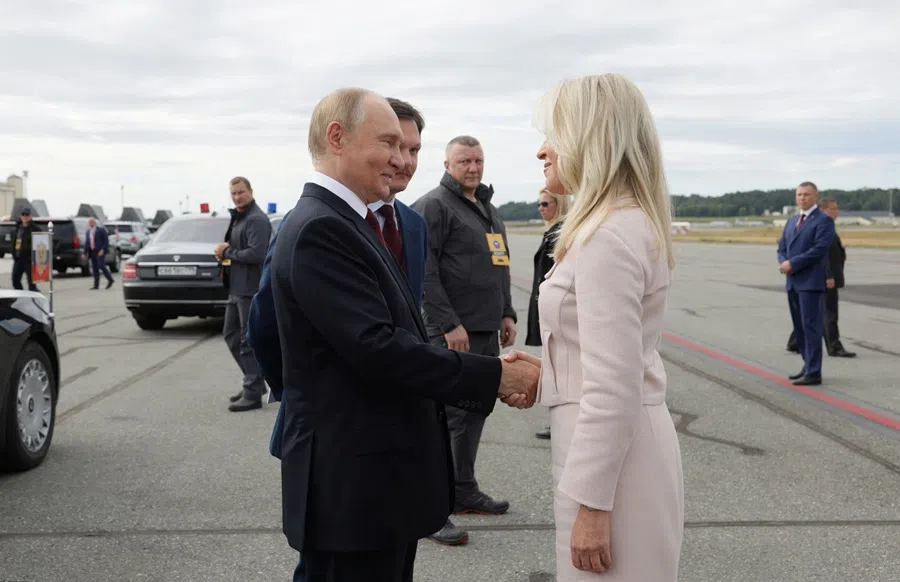
Jin Canrong, a Chinese international relations academic, felt that if the report is indeed true, Putin has placed China in a dilemma. He stated that as a matter of principle, China is reluctant to get involved in such matters because the complexities of continental European conflicts are deeply intertwined, and China only has a limited understanding of them. Furthermore, this issue has little relevance to China. Jin wrote in an article, “Russia’s request at this juncture for China to get involved poses a challenge for Chinese diplomacy.”
Moscow aims to leverage China as a counterbalance to Western influence, seeking to prevent a NATO-style entity from being established by the West as a “de facto NATO” — differing only in name.
The specifics of providing NATO-style security guarantees to Ukraine remain unclear, with many complex issues needing time to be resolved. It is unlikely that any proposal will be accepted by all parties immediately.
How this mechanism would be practically implemented, under what circumstances it would be activated, whether the consent of a majority of guarantors would be required and if they would deploy ground peacekeeping forces — all these issues lack concrete details. Nonetheless, it is already a core focus of discussions, and a key factor in determining whether the Russia-Ukraine war can be frozen.
From a positive angle, Putin’s inclusion of China in the list of guarantors reflects China’s growing influence in global affairs. Moscow aims to leverage China as a counterbalance to Western influence, seeking to prevent a NATO-style entity from being established by the West as a “de facto NATO” — differing only in name.
This would prevent the West from continuing to monopolise Europe’s security framework through NATO, and at the same time prevent the West from using Ukraine as a frontline against Russia. In essence, it is indicative of a distrust of a guarantor group composed wholly of Western or NATO member countries.
National interest first and foremost
However, China’s official stance has consistently emphasised neutrality, preferring to mediate conflicts through international organisations such as the United Nations (UN) rather than making straight commitments or being directly involved. Indeed, Beijing is cautious when it comes to providing security assurances.
In response to a Reuters question about whether China is willing to provide security guarantees in any form of a Russia-Ukraine peace agreement, Chinese Foreign Ministry spokesperson Mao Ning stated, “We don’t respond to hypothetical questions.”
Interestingly, after meeting with Trump in Alaska, Putin had phone calls with leaders from India, Brazil, Belarus, South Africa and some Central Asian countries — but notably, there was no mention of China.
... it [China] is more likely to participate in a neutral role within a UN-led multilateral framework, executing peacekeeping or mediation tasks, rather than haphazardly endorsing any side...
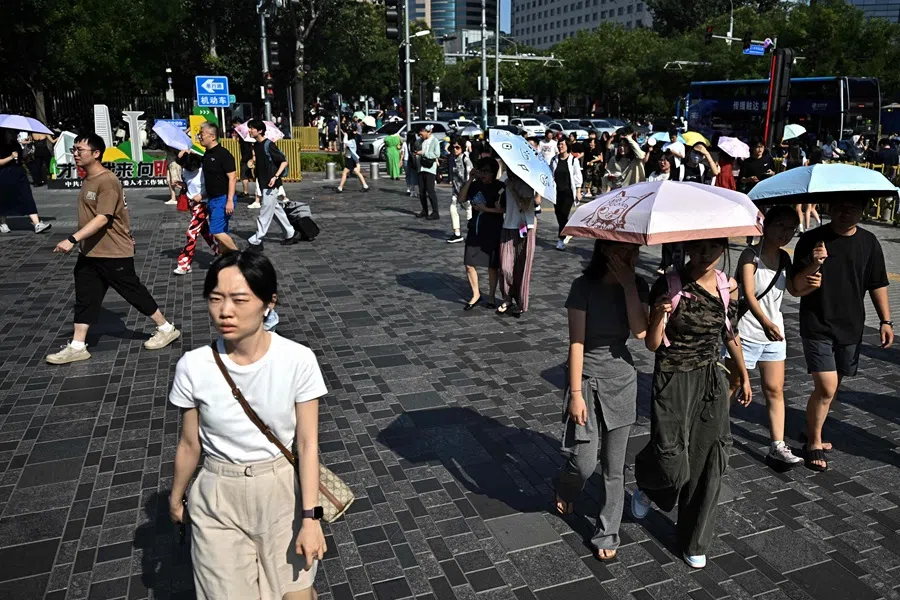
The fact that Putin has not approached China yet is likely because he is waiting for the dust to settle, waiting for the US and Europe to finalise their security assurance plans for Ukraine before addressing them one by one. If the time comes to negotiate “NATO-style” security guarantees, he could still play the China card.
However, Beijing is likely to maintain its so-called strategic focus. Thus, it is more likely to participate in a neutral role within a UN-led multilateral framework, executing peacekeeping or mediation tasks, rather than haphazardly endorsing any side. Such an approach would be more in line with its national interests.
Hence, although China might not have taken a seat at the table yet, it has not been made part of the menu either — China’s influence looms as large as its actual presence.
This article was first published in Lianhe Zaobao as “俄乌停战谈判,不见中国身影?”.
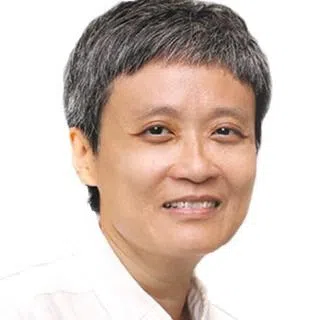




![[Big read] When the Arctic opens, what happens to Singapore?](https://cassette.sphdigital.com.sg/image/thinkchina/da65edebca34645c711c55e83e9877109b3c53847ebb1305573974651df1d13a)